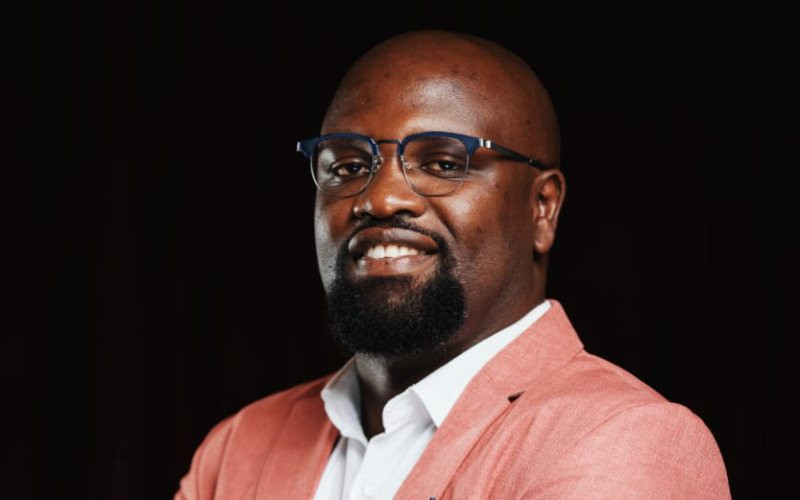
Men’s Mental Health Month came to an end in June, and one man’s quiet mission to walk with others is standing out. Not in boardrooms or press conferences, but in roundtables, coffee chats, and unspoken moments where men finally exhale.
George Karume, a Shopper Manager at EABL and certified coach, has spent the last few years doing something that many men were never taught to do: listen, ask, open up, and be present, not just for performance, but for healing.
And it all started with him being mentored first.
“After taking that mentor, he would show me what needed to be done, and how, and help me to see beyond the barriers that sometimes I could have in my head. My career really accelerated.”
But the breakthrough didn’t just end with personal success. When Karume moved into management, he noticed something unsettling. The people he was leading were skilled at their jobs but were silently struggling with personal issues. And no one was asking them how they were really doing.
So, he started asking.
“We would have very informal setups where we were having roundtables, asking each other how you are faring as an individual and what are the things that are affecting you, not necessarily at work, but even with your personal life,” he says.
What started as small conversations grew into a full-blown mentorship culture, one that today spans individuals he leads, others from different teams, and people who’ve never worked with him directly but have heard, somehow, that Karume is someone you can talk to.
- Meet mental health coach 'Hummingbird,' healing hearts and saving one soul at a time
- 'I want to stop': Young Kenyans open up about struggle with masturbation
- Unmasking the pain behind men's mental health
- "You've gained weight": How casual body-shaming comments leave lasting scars
Keep Reading
“That ended up becoming even bigger than I was expecting… I have quite a few mentees whom I work with, people whom I coach regularly,” says Karume, who is among the leaders of Man Talk, a space that is amplified to accommodate other departments.
Karume mentors on leadership, identity, financial wellness, and what he calls “working with the end in mind”, preparing people not just for a good career, but for a meaningful life.
“Not just showing up every day to work for a salary, but when you're out of unemployment, then you're miserable.”
However, he says his most important work lies in deeply personal conversations. When men come to him not for professional growth, but because their lives are falling apart quietly.
Men who’ve lost their spouses. Men grieving children. Men whose marriages are breaking down behind closed doors. Men are trying to hold it all together until they can’t.
“Having a platform where we can even have people sharing testimonies of how they maneuvered themselves during those seasons to get out of this other side… because what happens is that you expect somebody to deliver for the organisation, yet they're broken.”
Karume doesn’t pretend to have all the answers. So he learns too.
According to him, he's had to enroll in several life classes, including Ndoa, a marriage mentorship program at Mavuno Church, to be able to understand the institution even better.
He first joined as a participant, then became a coach, recognising that many of the personal challenges men face at home find their way into the workplace.
“I put myself in a space where I could learn how I can be there for them, how I can guide them.”
He’s facilitated the program for the last three years, one of the most structured mentorship spaces in his journey. The rest is less formal but no less impactful. He meets mentees monthly, and others reach out as needed.
Some conversations are about purpose, others about pain, but every one of them is about presence, he says.
“I'm deeply passionate about men. I believe that society is compromised today because men have sometimes refused to play their roles as fathers, husbands, brothers, or protectors. Sometimes men are the ones causing the most harm.”
Most of his mentees are men between 25 and 40, but Karume is open to anyone who seeks him out. Adding that gender doesn’t define his mentorship, the willingness to grow does.
“If I can positively impact your life through a conversation, that's what matters.”
According to him, his story is proof that men don’t need a stage to change lives. Sometimes, they just need someone to sit across the table, nod gently, and say, “I see you.”
 The Standard Group Plc is a multi-media organization with investments in media
platforms spanning newspaper print
operations, television, radio broadcasting, digital and online services. The
Standard Group is recognized as a
leading multi-media house in Kenya with a key influence in matters of national
and international interest.
The Standard Group Plc is a multi-media organization with investments in media
platforms spanning newspaper print
operations, television, radio broadcasting, digital and online services. The
Standard Group is recognized as a
leading multi-media house in Kenya with a key influence in matters of national
and international interest.











